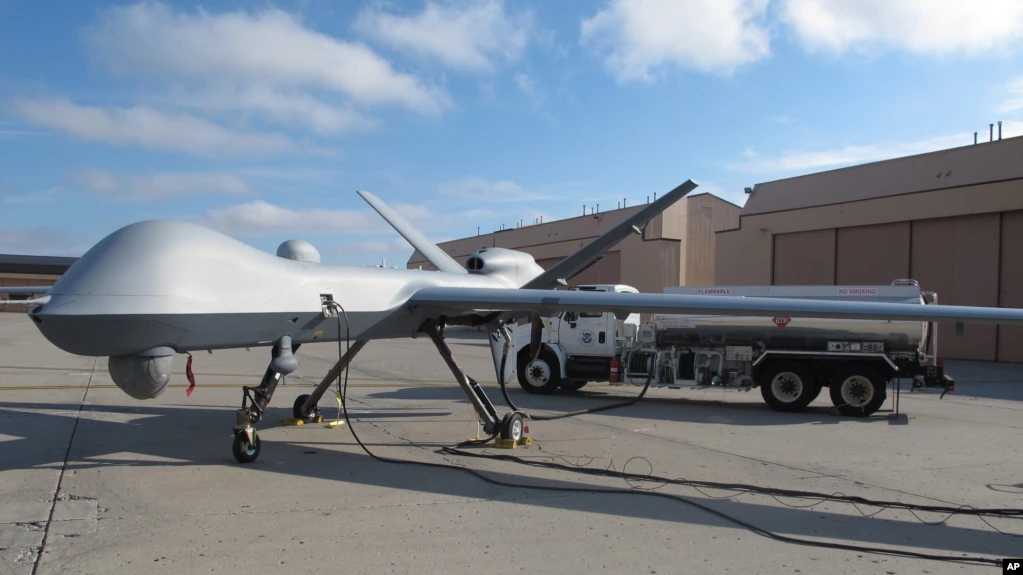A proposed rule change would require foreign nationals and companies to seek approval from the U.S. government to buy property within 160 kilometers of eight military bases, after a Chinese company tried to build a building near an air force base in North Dakota. factory.
The Treasury Department’s Office of Investment Security published the proposed rule in the US Federal Register on Friday (May 5) . The new rules would expand the powers of the Committee on Foreign Investment in the United States (CFIUS), which scrutinizes business transactions between U.S. companies and foreign investors, and could block a sale or force both parties to change the terms of an agreement to protect national security.
Fufeng’s plan to build a $700 million corn wet mill about 19 kilometers from Grand Forks Air Force Base, which handles aviation and space missions, has sparked controversy.
As opposition to the project grew, North Dakota Gov. Doug Burgum and Senators John Hoeven and Kevin Cramer — All three are Republicans — who raised questions about the security risks and asked the federal government to expedite a review last July.
CFIUS told Fufeng in September that it was reviewing the plan and ultimately concluded that the committee did not have jurisdiction to stop the investment.
The plan was eventually scrapped after the Air Force said the plant would pose a significant threat to national security.
The new rules will include Grand Forks and seven other bases, three of which involve the B-21 Raider, America’s future stealth bomber. The Pentagon has gone to great lengths to protect this state-of-the-art new bomber from the threat of Chinese espionage. The bomber will be able to carry nuclear weapons and conduct manned and unmanned missions.
Air Force Plant 42 in Palmdale, California, is producing six B-21 Raiders, while two other bases — Ellsworth Air Force Base in South Dakota and Germany Dyess Air Force Base, Texas – Future home to a stealth bomber fleet of 100 aircraft.
Also on the list are Lackland Air Force Base in San Antonio, Texas, and Laughlin Air Force Base in Del Rio, both training bases. The two remaining bases are the Iowa National Guard Joint Logistics Headquarters in Des Moines, Iowa, and Luke Air Force Base in Glendale, Arizona.
A Defense Department official, speaking on condition of anonymity, noted that the bases were selected for a number of reasons, including the sensitivity of their current or future missions, their proximity to special-purpose airspace including military operations, or their proximity to military training routes .
CFIUS, which has members drawn from departments including the State, Justice, Energy and Commerce ministries, has powers under a 2018 law to block real estate sales within 160 kilometers of other military bases.
Hoving said the committee’s procedures for reviewing proposed projects needed to be updated.
“Accordingly, Chinese investments in the United States need to be carefully scrutinized, especially at facilities like Grand Forks Air Force Base, a critical national security asset that leads intelligence, surveillance of all Air Force ‘Global Hawk’ surveillance aircraft,” he said. and reconnaissance operations, which play an increasing role in U.S. space operations.”
In February, Andrew Hunter, assistant secretary of the Air Force, said in a letter to North Dakota officials that the military believed the program posed a security risk, without elaborating.
The letter prompted Grand Forks officials to withdraw their support, which had initially welcomed the corn processing plant as an economic boon. Officials have refused to issue building permits and refuse to connect the 150-hectare site to public infrastructure.
Fufeng Group supplies products to industries such as animal nutrition, food and beverage, pharmaceuticals, healthcare, oil and gas, and is also a major producer of xanthan gum. Fufeng Group denies that the factory will be used for espionage.
Lawmakers also called for a review of foreign investment in agricultural land. Earlier this year, Senators Jon Tester (D-Montana) and Senator Mike Rounds (R-South Dakota) proposed measures aimed at blocking China, Russia, Iran and North Korea. Legislation to buy American farmland.
“A country like China that wants to undermine America’s position as the world’s leading economic power has no right to own property on our soil — especially near our military bases,” Tester said in a statement Thursday.
U.S. to restrict foreign individuals, companies from buying land near 8 military bases




